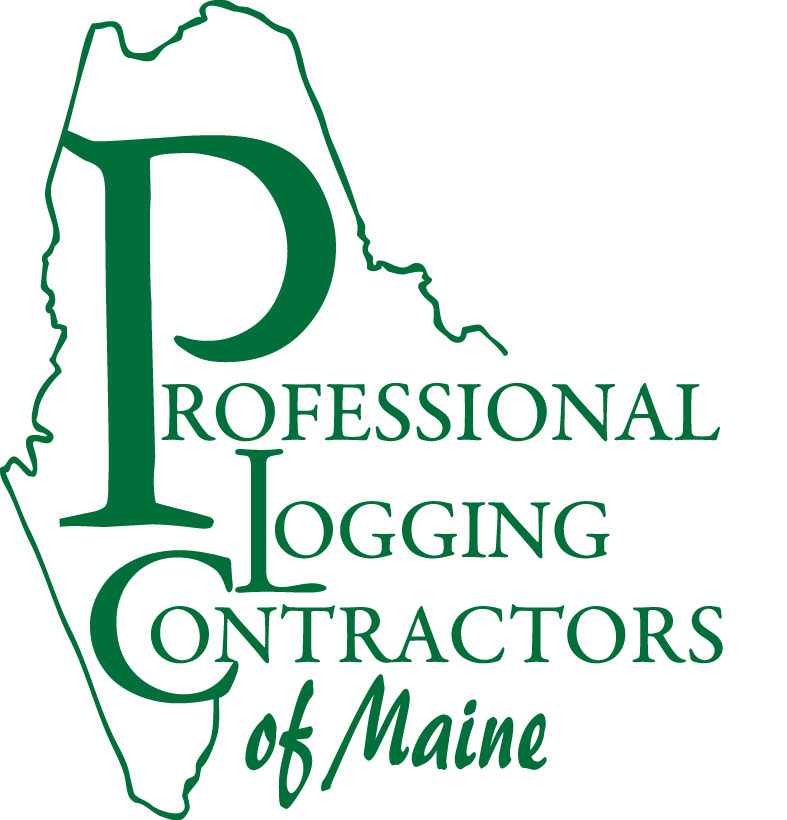SUMMIT TOWNSHIP, Maine — The Mechanized Logging Operations Program, a training program of the Maine Community College System in collaboration with the Professional Logging Contractors of Maine, began its sixth class the week of June 27 with introductory classes before transitioning to active harvesting in the woods northeast of Old Town in July.
Students enrolled in the 12-week certificate program will spend the summer harvesting timber using sophisticated state-of-the-art machines like those they will encounter in the logging industry. The hands-on experience students gain operating equipment is something unavailable anywhere else in Maine and neighboring states.
“This program offers the most efficient and affordable pathway into an exciting and good paying career in the Maine woods available,” Dana Doran, executive director of the PLC, said. “The experience and education students receive in this program is unmatched, and job prospects for graduates are stronger than ever because mechanized logging experience is a rare skill set that is in high demand.”
Graduation for the class will be held Sept. 15.
The program, run out of Northern Maine Community College, has been able to continue operating throughout the COVID-19 pandemic thanks to rigorous safety protocols and the outdoor nature of most of the training, which involves students operating equipment while communicating with instructors and other students via radios.
“This program provides a model for how industry and education can come together to support the needs of this industry,” Tim Crowley, president of NMCC, said. “This collaboration has received outstanding congressional support allowing NMCC to offer critical additional training sessions over the next 12 months.”
The program was jointly developed by the Professional Logging Contractors of Maine and NMCC with generous support from Milton CAT/CAT Forest Products, United Ag. and Forestry/John Deere, and other industry partners. With a strong emphasis on safety, students gain broad knowledge of the most common mechanical systems found in modern timber harvesting equipment, and an understanding of the variables of timber growth, tree species, and markets.
Supported by the Harold Alfond Center for the Advancement of Maine’s Workforce, students pay no tuition or fees and the program provides all required personal protective equipment. Additionally, as a result of generous support from Skowhegan Savings Bank, students have also been provided with scholarship assistance to help offset personal costs such as transportation, housing, childcare, and other subsistence expenses.
While the logging industry has seen some contraction in recent years, the demand for skilled operators of the feller bunchers, harvesters, grapple skidders, forwarders, delimbers, and other mechanized logging equipment that now harvests more than 95 percent of all timber in Maine is stronger than ever due to retirements in the industry and a general shortage of heavy equipment operators in multiple industries including logging. Mechanized logging operators are among the highest paid members of the logging workforce.
Anyone with an interest in the program should contact Leah Buck at Northern Maine Community College at 207-768-2768. Information may be found online at https://www.nmcc.edu/industry-customized-training/mechanized-forest-operations/.
Additional information including videos on the program may be found on the PLC website at https://maineloggers.com/mechanized-logging-operations-program/.
Maine’s loggers are a vital part of the state’s forest products sector, which is worth an estimated $8.1 billion annually. Logging contributed an estimated $619 million to the state economy in 2017.
Founded in 1995 with a handful of members who were concerned about the future of the industry, the PLC has grown steadily to become a statewide trade association which provides independent logging contractors and truckers a voice in the rapidly changing forest products industry. Board membership consists of only loggers, making it an organization that is run by loggers on behalf of loggers. PLC members are responsible for cutting 75 percent of the timber that is harvested from Maine’s forests annually.
Learn more about the PLC at www.maineloggers.com.








